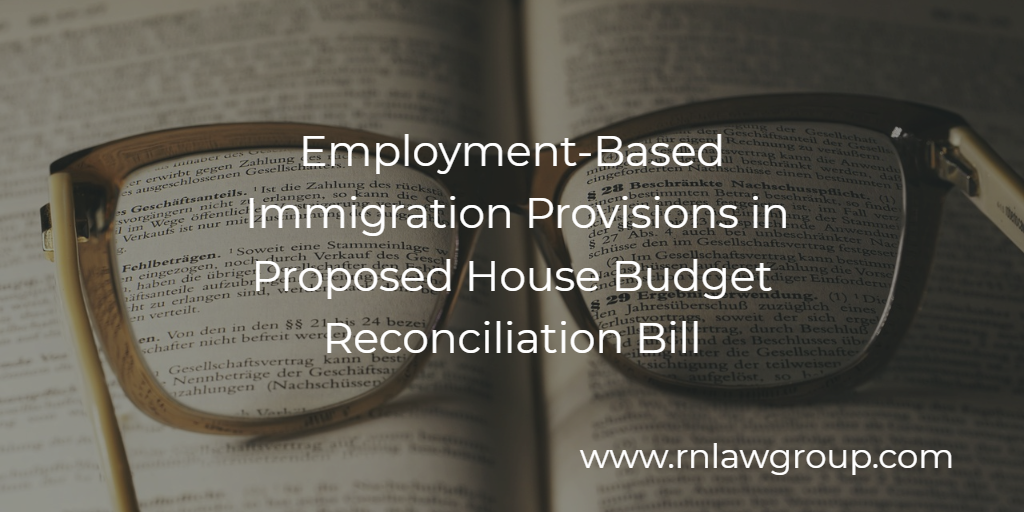
Employment-Based Immigration Provisions in Proposed House Budget Reconciliation Bill
This week, House and Senate Committees are tasked with drafting reconciliation legislation that implements the $3.5 trillion budget resolution. Democrats have looked to this process in order to move forward with immigration reforms, particularly for undocumented children, those with Temporary Protected Status, and farmworkers. The House Committee on the Judiciary has made public the immigration-related provisions intended to be included in the reconciliation legislation. After hours of debate and attempts to amend the bill, the House Judiciary Committee ultimately approved the legislation as is late Monday evening. This is not the final version of the bill, as it must eventually be reconciled with the Senate’s version of the bill, assuming the Senate parliamentarian agrees that immigration measures can be included in the reconciliation process.
There are important provisions included in this bill that are intended to provide relief for employment-based green card applicants who have been unable to receive permanent residence due to the backlog in available immigrant visas, mainly for those from India and China.
First, the bill would allow every employment-based green card that has gone unused from 1992 to 2021 to be made available for use beginning in Fiscal Year 2022 (which starts on October 1, 2021). Further, going forward, whenever there are unused Employment-Based immigrant visas in a given year, they will be added to the pool of available visas the following year so that they are not wasted in the future.
Second, an individual (and their spouse and children) who is the beneficiary of an approved I-140 petition with a priority date more than two years old can be exempted from the number of green cards available by paying a supplemental filing fee of $5,000. These individuals would be allowed to file the adjustment of status and receive the green card even if a green card is not actually available.
Other provisions that are not specific to employment-based immigrants but may also be of benefit include:
Potential relief for kids aging out of dependent status before the final action date becomes current. The individual must have entered the US when they were 18 years old or younger and be continuously physically present since January 1, 2021 and meet certain education or employment requirements. If all requirements are met, the applicant would be able to apply for adjustment of status and receive a green card without needing an employer sponsor, labor certification, or I-140 petition.
Those who have worked in an essential critical infrastructure capacity during the COVID-19 pandemic may also be eligible to adjust status.
Lastly, USCIS would receive $2.8 billion in additional funding to reduce case processing backlogs.
